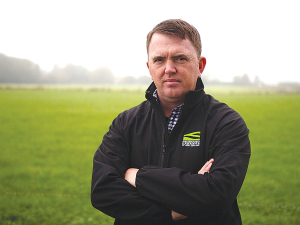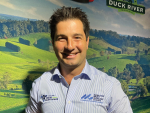Federated Farmers president Wayne Langford says Greenpeace has shown itself as an anti-farming lobby by criticising Fonterra’s new on-farm emissions targets.
Fonterra’s targets, released last weeks, would see the co-operative plan to reduce their emissions intensity by 30% by 2030.
“These are ambitious and credible targets that have been designed using the internationally recognized and independent Science Based Target initiative,” says Langford.
The Science Based Target initiative helps companies set clearly defined and scientifically robust plans to reduce emissions in line with the Paris Agreement goals.
However, Greenpeace last week claimed Fonterra’s targets amounted to little more than “polishing a turd”, saying the co-operative’s proposed climate roadmap contained no real measures to reduce emissions.
“Fonterra is New Zealand’s biggest climate polluter and has the third highest methane emissions of all dairy companies in the world, but it wants us to accept that it can cut emissions through mythical technofixes and offsetting with grass and scattered trees,” says Greenpeace Aotearoa campaigner Christine Rose.
She says the co-operative’s use of a 2018 baseline for its targets is unambitious and inappropriate because this is when the dairy herd was near its peak.
She also claims the plan’s reliance on ‘novel solutions’ is wishful thinking and carbon capture from grass and trees is creative accounting.
“Once again, Fonterra is failing to take meaningful action on its huge contribution to climate change,” she says. “It’s one thing to announce on-farm emissions reduction targets in response to market demands, but without concrete action, targets are meaningless.”
Yet Langford says Kiwi farmers are already the most carbon-friendly in the world, and Fonterra’s targets ask them to go even further.
“True environmentalists should be welcoming such strong leadership from New Zealand farmers who are doing their best, but instead Greenpeace were the first to criticise,” he says.
“Nothing Fonterra could have announced would have been good enough for Greenpeace because they’re anti-farmer and anti-science.
“They’re totally fixated on an impractical plan to half the herd and to ban fertilizer, but that’s completely out of touch with what most Kiwis want,” he explains.
“New Zealanders liked Greenpeace a lot more when they stuck to saving whales. They should get back to that and stop slagging off our world-leading farmers,” he concludes.



















